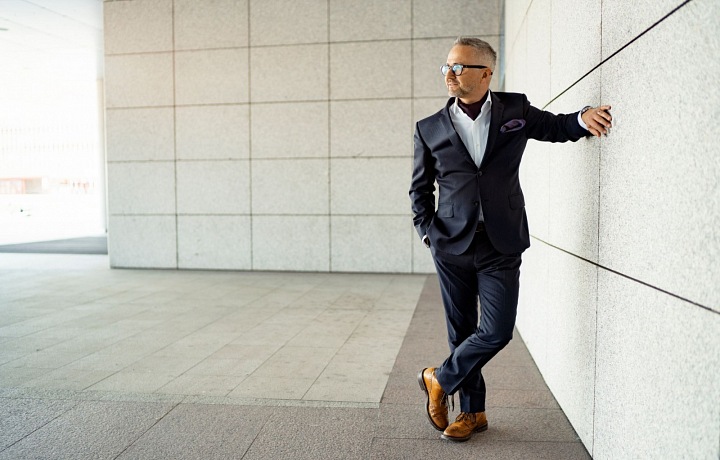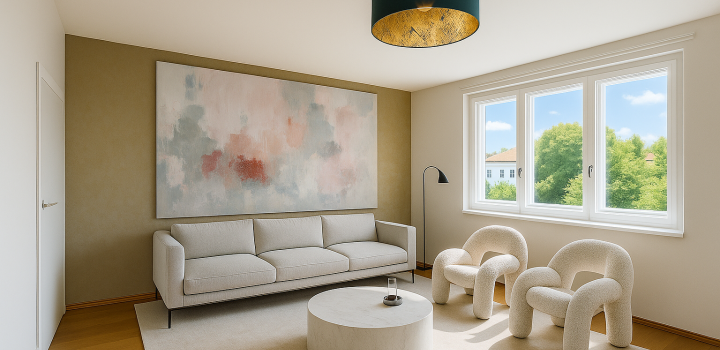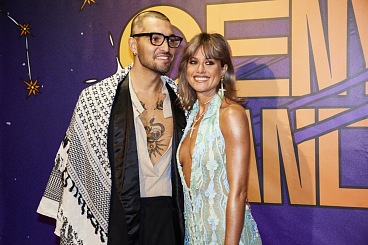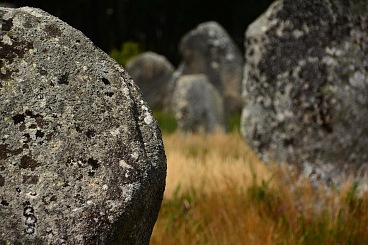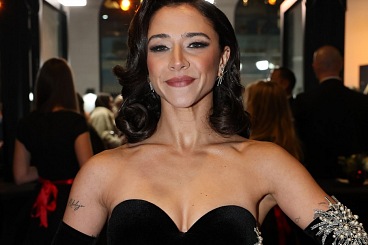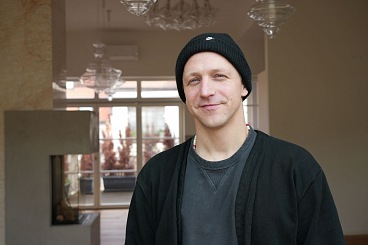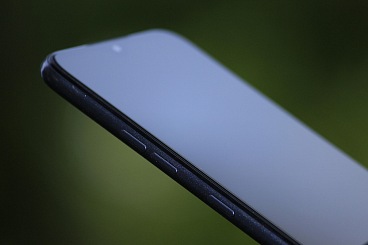Fast Confession - Marek Vrabec, founder and director of the Strings of Autumn festival: We started back when Václav Havel was president
Marek Vrabec, the founder and director of the Strings of Autumn festival, is a true music fan and a great experimenter. For twenty-five years, he has been enabling Czech audiences to hear not only the best of the Czech music scene, but especially world stars and masters of their field. The icing on the cake is his surprising and revelatory merging of musicians, resulting in an unexpected harmonic unison that has led to the winning of such a major award as the Grammy. He founded the festival in 1996, together with Martin Pechanec, and this year's edition will take place from 19 October to 3 December 2021 in several different concert halls throughout Prague. And as Marek Vrabec says: "Even the best recording or stream is no substitute for the magic that is created between the artists at a live concert. The Strings of Autumn was created for these experiences and will be so again this year." The festival starts this very day.
This year, the Strings of Autumn music festival celebrates 25 years. How has it developed since its beginnings?
Actually, we originally started at the Castle when Václav Havel was president, and it was a very different time back then than it is today. Then we left the Castle, and after twenty-five years, which we are celebrating this year, you could say that we are already a kind of an institution. On the one hand it is wonderful, on the other hand it is a bit sad that we have become "set in stone" in a way. But I don't think we're all that "set in stone" actually, because we're still doing a relevant festival that responds to the essential events in the music world and that's still an exciting thing.
What do you consider to be the main events in the festival's history and why?
One thing is what was happening on stage, those artistic highlights, of which there have been several at the Castle, like the Michael Nyman or Magdalena Kožená concerts, and later Bobby McFerrin, Gregory Porter and others. But another thing are the important milestones in our development inside. And on that accord I must say that there were very important crises as well, that we had to go through. Whether it was the moment when President Klaus called us a guerilla action and we had to leave the Castle after 7 years, or the staffing crisis that we had as a team in 2016. Lastly, we were hit by the COVID crisis as well, which, like the previous ones, moved us forward, because due to it we decided to move the festival outdoors, and it turns out that it is a great idea.
Prague Sounds, or the 1st year of the new full-fledged open-air festival is already behind us. How would you assess it?
That we were very lucky. I also realised that I had never been moved by looking at the weather forecast before. And that's what happened on the day of the first Prague Sounds concert, when I found out that we were going to have a warm and sunny week with no rain. And indeed it was. That was the first prerequisite for success. And the second was that amazing artists came to congratulate us on our 25th anniversary on the floating stage on the Vltava River, where the Prague Sounds festival took place. Whether it was Jiří Suchý, or the phenomenal cellist Yo-Yo Ma, or Brad Mehldau or the phenomenal Lizz Wright.
First-year or 25th? What are the pitfalls of each? Which is easier to organize?
It's relatively easy, as I found out, or am still finding out, to host the first edition when you've already got the 25 under your belt. Because you have the experience. So doing the first year after twenty-five years is a cakewalk.
What concerts would you definitely direct us to and what makes them special?
At the Strings of Autumn Festival, each concert is a completely different type of music and each one is an experience of its own kind, so I invite you to all of them. To name one for all, Madeleine Peyroux, an American singer-songwriter, has never been here before and will be performing at Lucerna on 28 October. By the way, this is one of the main features of Strings of Autumn. We try to bring artists to Prague who have never performed here before. And this is one of them.
What are the biggest talents the festival has discovered and now they are stars?
There are a number of names that the festival has discovered, either international ones in particular, or ones that it has introduced to the Czech audience for the first time. I have a list here, I won't name them all, but for all of them - we brought Brad Mehldau here for the first time, Robert Glasper, and also Gregory Porter... and so on and so forth. So every concert has the ambition to be a revelatory one, and so we bring both important foreign artists who have never been here before and we discover young Czech ones.
You have a talent for bringing artists together and your ideas have led to interesting Czech-foreign groups or duos. Which are your personal favourites and which are worth mentioning?
We went or ventured in that direction when Bobby McFerrin was here and expressed his wish to improvise with a Czech artist, so we chose Dan Bárta, Iva Bittová and Tara Fuki and I think Clarinet Factory and it was fantastic. I think Dan's improvisation in particular was really memorable and changed the life of not only everybody in the hall at the time, if I'm being hyperbolic, but also Dan Bárta himself. He hit an incredible improvisation with Bobby McFerrin without preparation. Then we got up the courage and started to make this a principle, to put a foreign star next to a talented Czech artist we trusted, and it paid off to the full. In the case of Gregory Porter, who we paired with a Czech Hammond organ player, Ondrej Pivec, to play the „hammond“ with him, it "clicked" and they played together. It could have ended there, but it didn't. Shortly afterwards Ondřej Pivec was invited to record the Blue Note Records album and the following year this joint record won a Grammy, a beautiful example of how far such an initial idea can lead.
You are the organizer of the New Year's Eve concert at the Rudolfinum, and you also collaborate with the Czech Philharmonic in the traditional New Year's concert. Why this initiative?
We felt that at the turn of the year, especially on New Year's Eve, there are not many sophisticated cultural events in Prague, so we decided to organize one. To have a New Year's Eve "milonga" in Rudolfinum. This year the great, world-renowned horn player Radek Baborák will perform Argentine tango by the legend of this genre Ástor Piazzolla together with more American music. In fact, the whole New Year's Eve will be in this South American spirit. The Czech Philharmonic's New Year's Eve concert is a great entry into the New Year with our orchestra on the red carpet and with all the social glamour that such an event should have. And we are very proud to co-host such an event.
You, personally, are a drummer. Do you ever play the drums again?
I don't, the last time I played the drums was about five years ago at a friend's wedding, where we played together. It just reinforced to me that I'm not up to playing professionally anymore and playing with amateurs doesn't cut it for me. It's kind of that ex-professional musician-athlete syndrome, it's the same with them.










